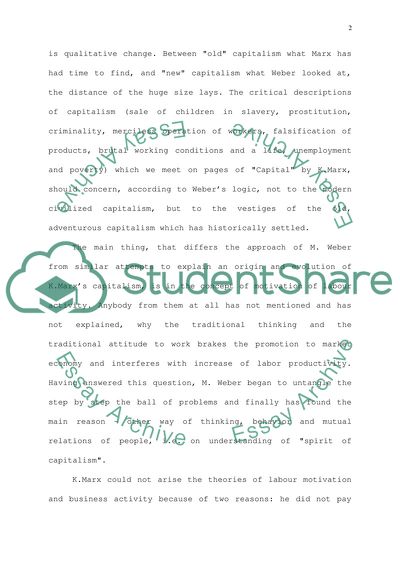Cite this document
(“Marx and Weber on the Transition to Capitalist Modernity Essay”, n.d.)
Marx and Weber on the Transition to Capitalist Modernity Essay. Retrieved from https://studentshare.org/philosophy/1542845-contrast-and-compare-marx-and-weber-on-the-causes-of-the-transition-to-capitalist-modernity-and-to-what-extent-can-the-former-be-bracketed-a-materialist-and-t
Marx and Weber on the Transition to Capitalist Modernity Essay. Retrieved from https://studentshare.org/philosophy/1542845-contrast-and-compare-marx-and-weber-on-the-causes-of-the-transition-to-capitalist-modernity-and-to-what-extent-can-the-former-be-bracketed-a-materialist-and-t
(Marx and Weber on the Transition to Capitalist Modernity Essay)
Marx and Weber on the Transition to Capitalist Modernity Essay. https://studentshare.org/philosophy/1542845-contrast-and-compare-marx-and-weber-on-the-causes-of-the-transition-to-capitalist-modernity-and-to-what-extent-can-the-former-be-bracketed-a-materialist-and-t.
Marx and Weber on the Transition to Capitalist Modernity Essay. https://studentshare.org/philosophy/1542845-contrast-and-compare-marx-and-weber-on-the-causes-of-the-transition-to-capitalist-modernity-and-to-what-extent-can-the-former-be-bracketed-a-materialist-and-t.
“Marx and Weber on the Transition to Capitalist Modernity Essay”, n.d. https://studentshare.org/philosophy/1542845-contrast-and-compare-marx-and-weber-on-the-causes-of-the-transition-to-capitalist-modernity-and-to-what-extent-can-the-former-be-bracketed-a-materialist-and-t.


